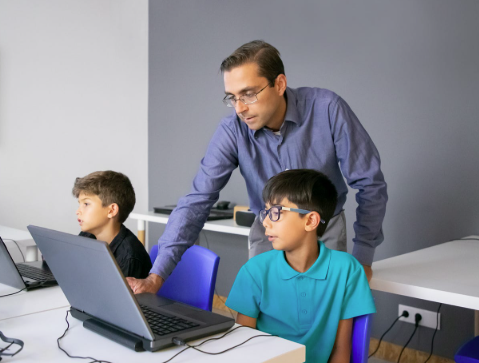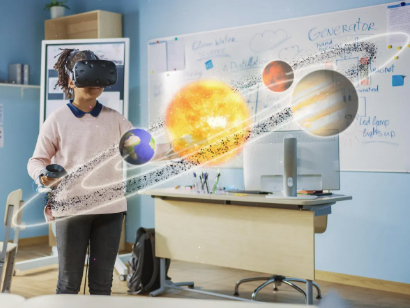By 2030, education is expected to undergo significant transformations driven by technology, globalization, and evolving societal needs. As digital platforms become more advanced and widespread, the traditional classroom will continue shifting toward flexible, personalized, and immersive learning experiences. Emerging innovations will not only redefine how students learn but also how educators teach, assess, and collaborate. Here’s a look at what education in 2030 might look like and the key innovations likely to shape it.
1. Personalized Learning Powered by AI
Artificial intelligence will play a major role in customizing education to fit individual student needs. Adaptive learning platforms will use real-time data to adjust content difficulty, suggest resources, and provide instant feedback. This shift will help students learn at their own pace while identifying areas for growth more effectively.
2. Widespread Use of Virtual and Augmented Reality (VR/AR)
By 2030, immersive technologies like VR and AR are expected to be common in classrooms. These tools will allow students to explore virtual historical events, conduct simulated science experiments, or interact with 3D models of biological systems. Such experiences will enhance understanding and engagement across subjects.
3. Global Classrooms and Collaborative Networks
Thanks to improved connectivity and multilingual tools, students will increasingly participate in global classrooms. Cross-border collaboration on projects, international peer discussions, and exposure to diverse perspectives will become standard, promoting cultural awareness and global citizenship.
4. Expansion of Microlearning and Modular Credentials
The future of education will emphasize flexible, modular learning that can be adapted to individual career paths. Microlearning—short, focused lessons—will become popular for building specific skills. Stackable credentials and digital badges will allow students to showcase their competencies in real time.
5. Integration of Lifelong Learning Platforms
With careers evolving rapidly, lifelong learning will become more essential. Platforms that support ongoing education—combining formal courses, short certifications, and self-paced learning—will be critical. Learners will regularly upskill and reskill, whether in school or well into their careers.
6. Enhanced Learning Analytics
Data-driven insights will play a bigger role in shaping educational strategies. Learning analytics tools will track progress, engagement, and knowledge retention, helping educators make informed decisions and personalize instruction more effectively.
7. Voice-Enabled and Multimodal Learning Interfaces
Voice recognition and AI assistants will make education more accessible. Students may interact with voice-powered tutors, multilingual chatbots, and hands-free study tools. Combined with text, images, and video, learning will become increasingly multimodal and interactive.
8. Eco-Conscious and Sustainable Learning Environments
Education in 2030 will prioritize sustainability, both in content and infrastructure. Schools will adopt energy-efficient technologies, promote environmental awareness through the curriculum, and engage students in sustainability-focused projects.
9. Emphasis on Soft Skills and Emotional Intelligence
As automation handles more routine tasks, soft skills like communication, empathy, and critical thinking will become central to education. Innovative programs will integrate emotional intelligence, team collaboration, and real-world problem-solving into the curriculum.
10. Hybrid and On-Demand Learning Models
Flexible learning formats that blend online and in-person experiences will dominate. On-demand classes, asynchronous learning modules, and just-in-time tutorials will empower students to learn anywhere and anytime—without sacrificing support or interaction.
Conclusion
Education in 2030 will be shaped by a blend of innovation, accessibility, and personalization. From AI tutors and immersive virtual labs to modular credentials and global collaboration, emerging technologies will unlock new possibilities for both teaching and learning. These advancements will help students become more engaged, adaptable, and prepared for the future of work and society.














